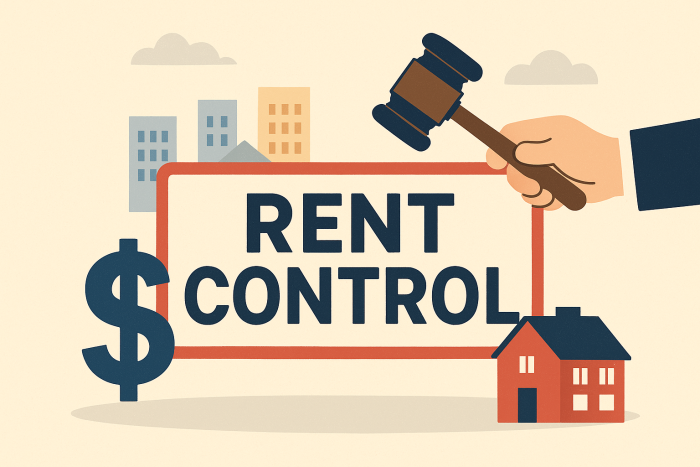As Massachusetts faces rising housing costs, some have proposed rent control — government-imposed limits on rent increases — as a way to make housing more affordable. However, history and research show that rent control is unlikely to solve the problem, and may even make it worse.
A Look Back: Rent Control in the 1970s
Massachusetts first experimented with rent control in the 1970s in cities like Boston, Cambridge, Somerville, Brookline, and Lynn. The results were problematic:
-
Rental unit numbers declined by 8–12%, and property values dropped.
-
Rent-controlled buildings fell into disrepair because landlords could not afford maintenance.
-
New construction stalled, leaving cities with thousands of vacant or unusable properties.
-
Many units were occupied by higher-income tenants rather than low-income households.
By the mid-1980s, these negative effects led to a repeal of local rent control policies in 1994.
Why Rent Control Fails Today
Research consistently finds that rent control leads to:
-
Reduced Housing Supply: Developers and landlords are discouraged from building or maintaining rental properties when future rents are capped.
-
Lower Housing Quality: With rental income limited, landlords have fewer resources to maintain or upgrade properties, which can further depress property values.
-
Limited Benefits for Those Most in Need: Rent-controlled units often go to higher-income tenants, reducing mobility and leaving the most vulnerable renters without affordable options.
Studies in cities like San Francisco, New York, and St. Paul, MN, have shown that rent control can even increase overall rents due to reduced supply and competition for remaining units.
Better Alternatives
Instead of repeating past mistakes, Massachusetts should focus on policies that encourage new housing construction and maintain quality. Proposals on the 2026 ballot could allow cities to reduce minimum lot sizes for single-family homes, opening opportunities for more affordable housing. Polls show that a strong majority of Massachusetts voters support these approaches.
Conclusion
Rent control is not a silver bullet. It risks shrinking housing supply, reducing quality, and making housing less accessible for those who need it most. Massachusetts’ best path forward is to incentivize development, improve existing housing, and adopt policies that increase affordability without the unintended consequences of rent control.
Credit: Mass Opportunity Alliance, “Deep Dive: Rent Control Didn’t Work in the ‘70s and It Won’t Work Now,” September 26, 2025
Link to original article: https://massopportunity.org/
Link to original article: https://massopportunity.org/

